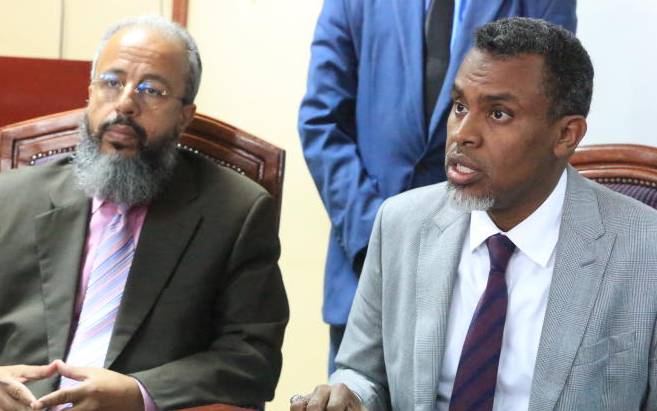×
The Standard e-Paper
Join Thousands Daily

DPP Noordin Haji and prosecutor Taib AliTaib addressing members of press after he directed that CS for finance among other people to be arrested over the controversial Arror and Kimwarer dams. [Geore Njunge/Standard]
As we begin the new fiscal year, there have been discussions regarding the budget. Criticism has been focused on taxation levels and foreign borrowing, as well as the restructuring of civil servants’ salaries.